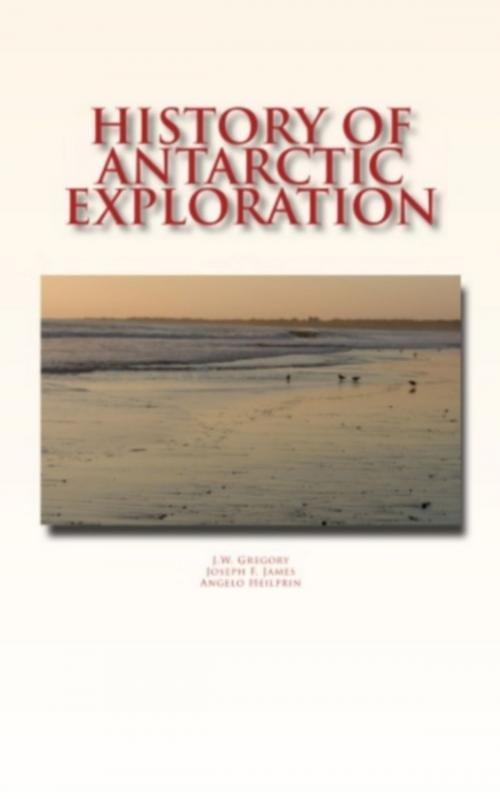| Author: | J.W. Gregory, A. Heilprin, J.F. James | ISBN: | 9782366595031 |
| Publisher: | LM Publishers | Publication: | August 16, 2017 |
| Imprint: | LM Publishers | Language: | English |
| Author: | J.W. Gregory, A. Heilprin, J.F. James |
| ISBN: | 9782366595031 |
| Publisher: | LM Publishers |
| Publication: | August 16, 2017 |
| Imprint: | LM Publishers |
| Language: | English |
This book presents the History of Antarctic Exploration. "The search for the supposed great southern continent roused interest in the South Polar area, even earlier than the commercial need for the Northeast or Northwest Passage directed the attention of the European nations to the Arctic seas. Long before Hudson had started the northern whale fishery, or Barents had discovered Spitzbergen, or Willoughby had set out on that 'new and strange navigation' which, according to Milton, was intended to save England from the commercial ruin threatened by foreign competition, Arabian, Dutch and Spanish sailors had searched for a continent in the great southern sea. In the year 1901, four expeditions are starting for the Antarctic: an English expedition under Commander R. F. Scott, E. N., in the 'Discovery'; a German expedition under Professor E. von Drygalski in the 'Gauss'; a Swedish expedition under Dr. Otto Nordenskjöld in the 'Antarctic' and a Scotch expedition under Mr. W. S. Bruce. The four expeditions will work as far as possible on a common plan, but in different areas. The 'Discovery' will start from New Zealand and go thence into the Ross Sea, which will be its central field of work. The German expedition will go south from Kerguelen to the western end of Wilkes Land, geographically the least known part of the Antarctic; its route will depend on the geography of the area, but the idea is to work southwestward toward the Weddell Sea, south of the Atlantic. The Swedish and Scotch expeditions both go to the South Atlantic. The work of these expeditions will depend primarily on the geographical character of their fields of operation. The Antarctic area includes three main geographical divisions, (1) Wilkes and Victoria Lands; (2) the division south of the Pacific from Ross's Sea to Alexander Land; (3) the Graham Land with its associated archipelagoes and the Weddell Sea that separates it from the western end of Wilkes Land..."
This book presents the History of Antarctic Exploration. "The search for the supposed great southern continent roused interest in the South Polar area, even earlier than the commercial need for the Northeast or Northwest Passage directed the attention of the European nations to the Arctic seas. Long before Hudson had started the northern whale fishery, or Barents had discovered Spitzbergen, or Willoughby had set out on that 'new and strange navigation' which, according to Milton, was intended to save England from the commercial ruin threatened by foreign competition, Arabian, Dutch and Spanish sailors had searched for a continent in the great southern sea. In the year 1901, four expeditions are starting for the Antarctic: an English expedition under Commander R. F. Scott, E. N., in the 'Discovery'; a German expedition under Professor E. von Drygalski in the 'Gauss'; a Swedish expedition under Dr. Otto Nordenskjöld in the 'Antarctic' and a Scotch expedition under Mr. W. S. Bruce. The four expeditions will work as far as possible on a common plan, but in different areas. The 'Discovery' will start from New Zealand and go thence into the Ross Sea, which will be its central field of work. The German expedition will go south from Kerguelen to the western end of Wilkes Land, geographically the least known part of the Antarctic; its route will depend on the geography of the area, but the idea is to work southwestward toward the Weddell Sea, south of the Atlantic. The Swedish and Scotch expeditions both go to the South Atlantic. The work of these expeditions will depend primarily on the geographical character of their fields of operation. The Antarctic area includes three main geographical divisions, (1) Wilkes and Victoria Lands; (2) the division south of the Pacific from Ross's Sea to Alexander Land; (3) the Graham Land with its associated archipelagoes and the Weddell Sea that separates it from the western end of Wilkes Land..."















